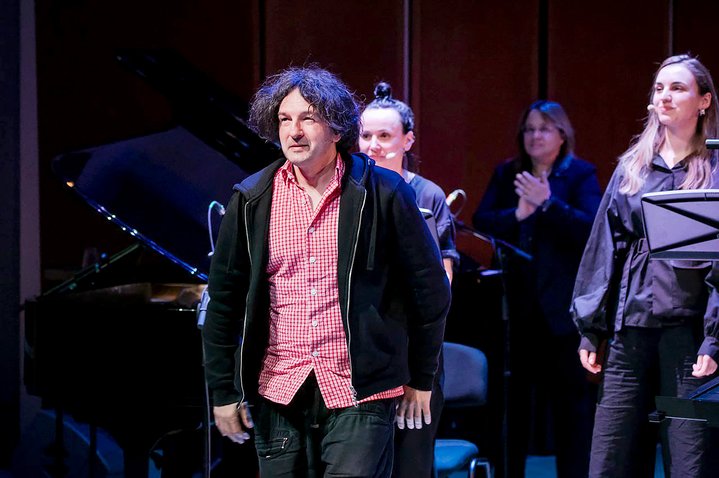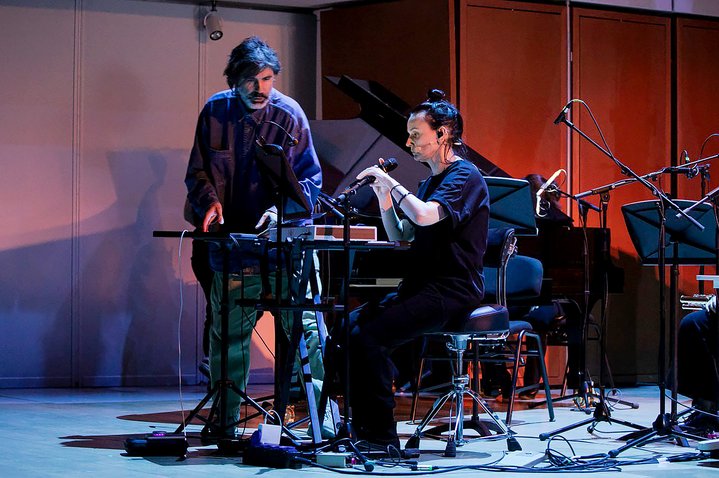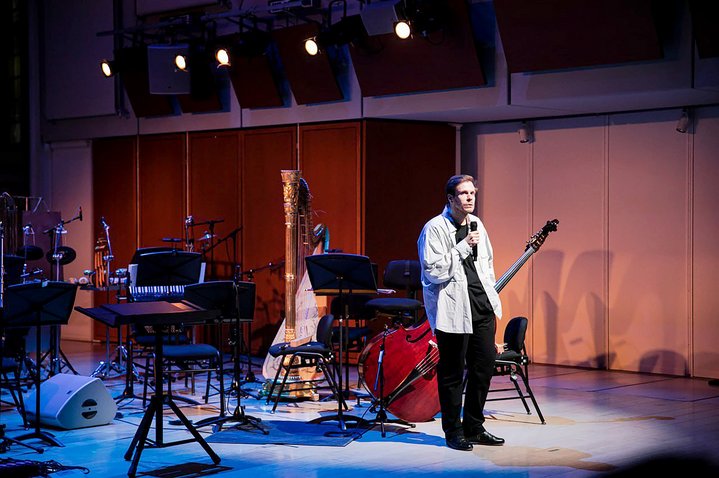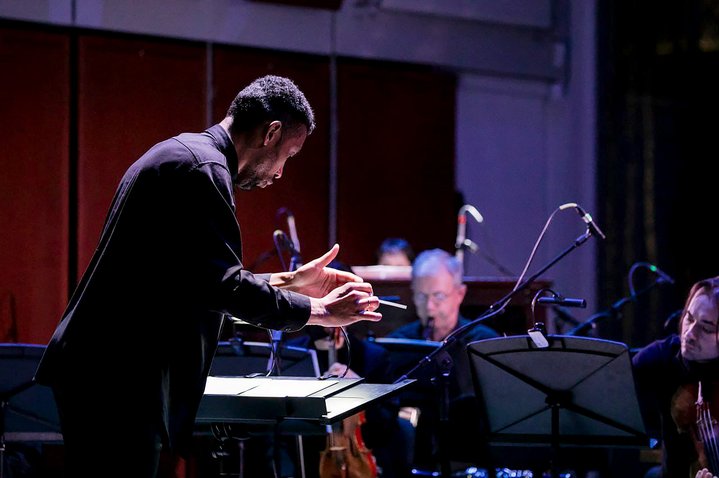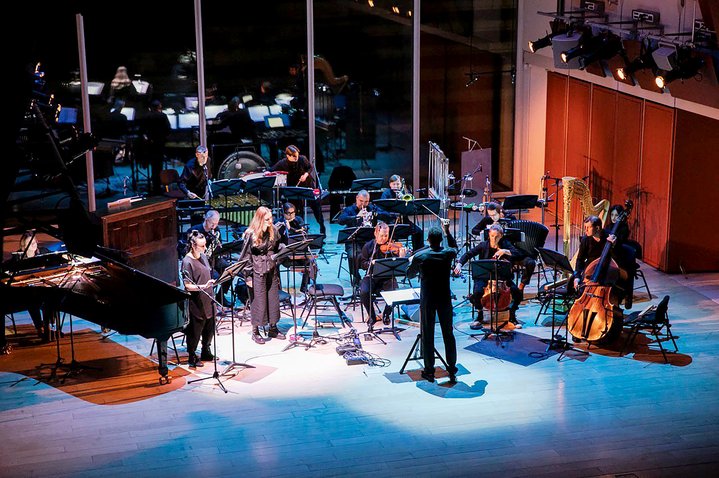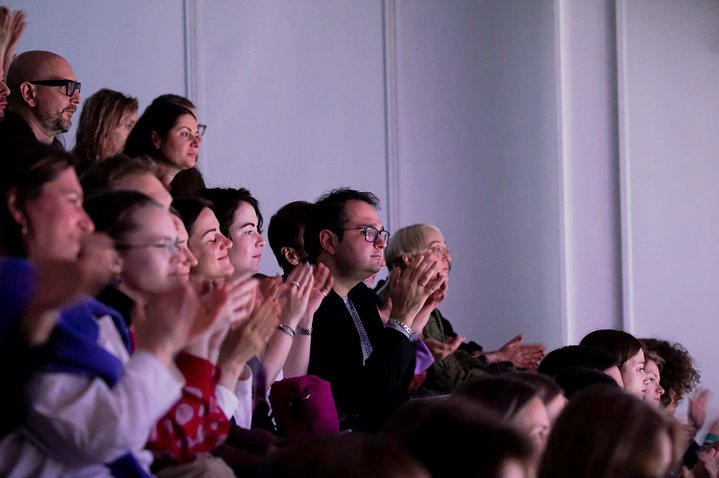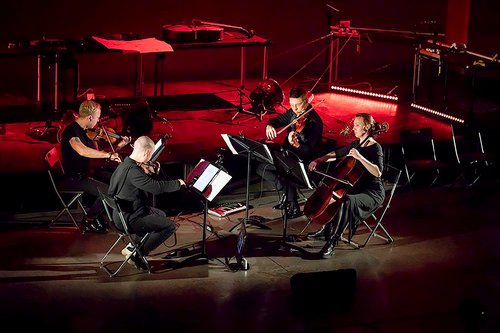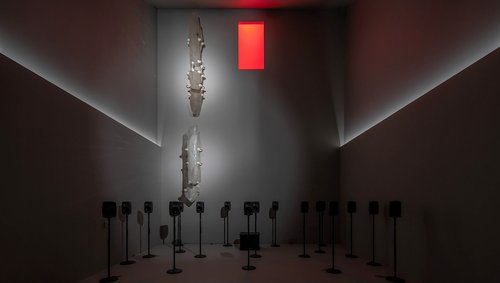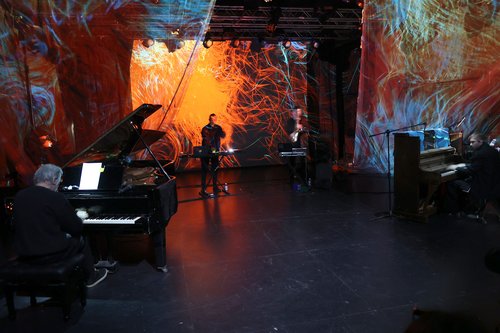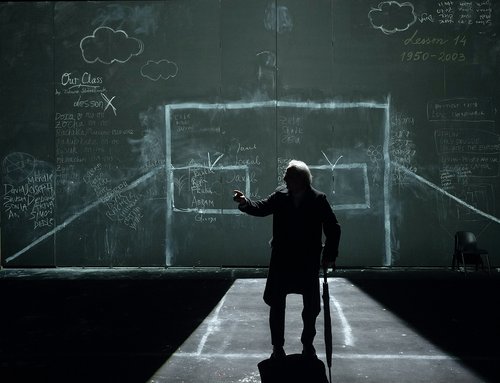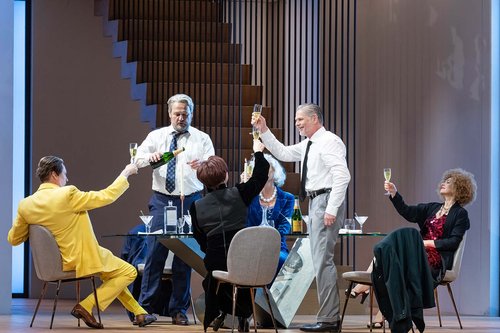Take it Easy, Shakespeare!
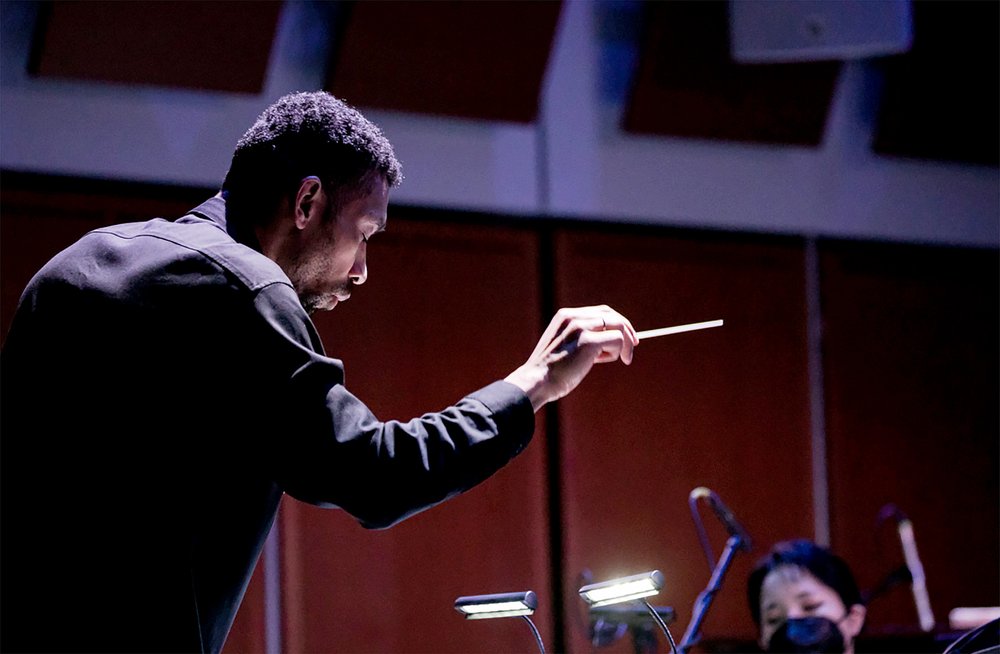
Words and Spaces. Gustav Mahler, Vladimir Rannev, Ivan Bushuev. Moscow, 2024. Photo by Anya Todich. Courtesy of Courtesy of GES-2 House of Culture
As part of a series of pioneering concerts at GES-2 in Moscow which explore notions around contemporaneity, two of Russia’s leading composers, Vladimir Rannev and Ivan Bushuev have turned to the Moscow conceptualists to create new repertoire for the voice which attempts to convey human states of longing.
‘...trying to imagine a man who would say to Shakespeare: Relax!’ is the curious title of one of two powerful new pieces of music set to poems by Moscow conceptualist poets. Recently premiered at GES-2 as part of a series of concerts under the theme ‘What is the Contemporary?’, (the piece by Ivan Bushuev (b. 1984) has the rather simpler title ‘Serenade’), they were finished off with a rendition of Mahler’s vocal cycle Kindertotenlieder for voice and chamber ensemble by Dutch conductor Reinbert de Leeuw (1938–2020) performed in Russia for the first time.
Dmitry Renasky is the curator of musical programming at GES-2 and a man with a mission, he talks with enthusiasm about the project. “‘Words and Spaces’ is vocal music, how composers interpret our human voice and its expressive possibilities, how they work with the literary text underlying the score. The starting point is Gustav Mahler's Kindertotenlieder because back in 1904 it was he who shaped the image of modern music for the voice, even setting the direction and standards for contemporary composition today. This trio Mahler, Rannev and Bushuev transform the stage in the auditorium into a vocal-instrumental theatre devoid of external action, but with a dramatic expressiveness close to mono-opera”.
In general, musical programming at GES-2 is about creating new connections between the music of the past and contemporary art. Listeners need to come with a readiness to learn, whether intellectually or spiritually, it is not about pure entertainment. The abstract nature of the medium does not shun social politics and contemporary social anxieties as in the first concert of Arnold Schoenberg's ‘Ode to Napoleon’ and Dutchman Louis Andriessen’s ‘Nietzsche Speaks’ which addressed tyranny and less overtly the world premiere of Anton Svetlichny’s play ‘Raskol. Five Acts about Khovanshchina’, referring to the opera by Modest Mussorgsky about the bloody period of the Streltsy revolts and the accession of Peter the Great.
Remarkably, looking for inspiration for the ‘Words and Spaces’ commission, both composers independently chose texts by the Moscow Conceptualists. And although the poems they chose are very different, the key to both is the notion of human states of longing. The words in Rannev’s composition are by Lev Rubinstein (1947–2024). He wrote it on a card when he was working as a librarian turning an ordinary catalogue card into an artistic object. The words read: “Our life itself / On the waves rides / With endless longing.” Rubinstein had already given his blessing to Vladimir Rannev’s idea before the poet was tragically killed in a traffic accident last January. The work reflects on Rubinstein’s place in the artistic life of his epoch, he was a free lyricist loved by everyone. In the piece, called ‘Serenade’ Rannev balances a baroque aria with a Soviet pop song and the endless whirling of two female voices becomes a serenade, an elegiac love song from composer to poet.
Bushuev chose Andrei Monastyrsky's (b. 1949) text ‘Composition 1973’, written in the form of an endless stream of word-images which ends in the word longing. In Bushuev’s work the text is spoken more than sung, at times surfacing and at times sinking deep into the dense musical fabric, with live timbres using the techniques of electronic composition.
There is a sense that their impetus came from Mahler’s famous song cycle set to poems by the 19th century German poet Friedrich Rückert, full of grief, capturing the unspeakable pain of the death of his children, something Mahler himself experienced, although after finishing his opus, which in many ways defined the vocal lyricism of the 20th century.
GES-2 concerts generally attract a different kind of audience than usual philharmonic goers. Their listeners are young, open to new approaches, and inspired by the interaction of music and contemporary art. But they also attract professionals active in the creative life of the capital, whether musicians, composers, directors of museums and theatres, critics, artists, art historians, or curators. ‘Words and Spaces’ was attended by opera director Dmitry Chernyakov, conductor Philip Chizhevsky, the composers Vladimir Gorlinsky and Anton Svetlichny, musicologist and specialist in new and contemporary music Svetlana Savenko. And of course, poet and artist Andrei Monastyrsky.
‘Words and Spaces’ is one of several concerts in the “What is the Contemporary?” programme this Spring. The title refers to an essay by Italian philosopher Giorgio Agamben who “comes to the paradoxical conclusion that only an artist who is not contemporary can be truly relevant, one who is able to see contemporaneity from the outside, with the perspective of time”. Curator Dmitry Renansky puts it this way: “We try to show that the notions of ‘classical’ and ‘contemporary’ art are nothing more than conventions, with no barriers between them. Dialogue between old and new art, playing with the perspective of musical tradition, searching for points of intersection between epochs and styles, these are the key principles of our musical programme at GES-2. In May music by contemporary composer Boris Filanovsky will be performed with Renaissance choral music, and outstanding violinist Elena Revich will play solo partitas by Bach with electronic orchestration by Alexander Khubeyev, commissioned by GES-2”.






